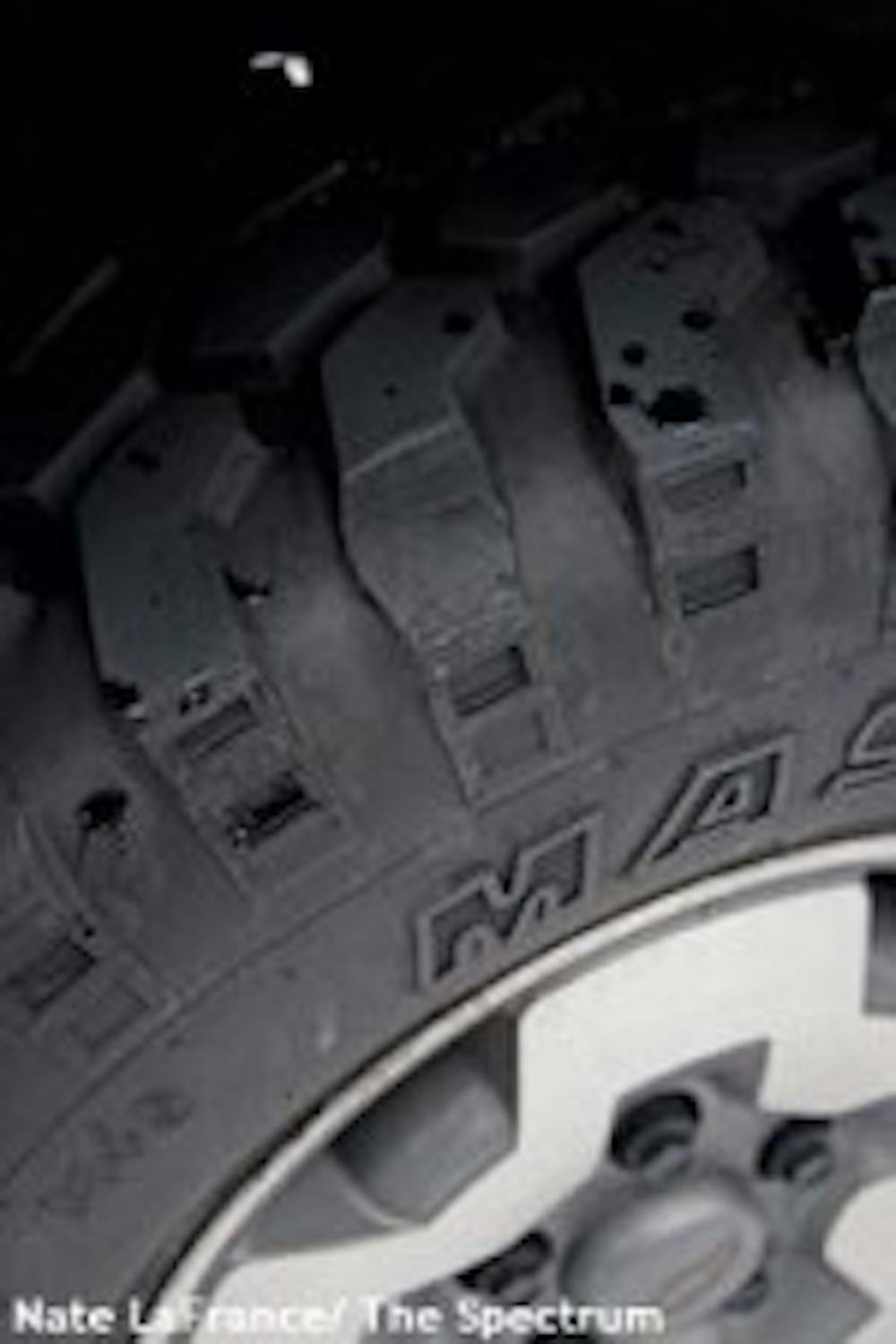The strife of winter is closing in on Buffalonians once again: drivers have to go out to their cars 15 minutes early with a shovel and a windshield scraper to dig out and clean the snow off their cars.
Students cruising around Buffalo should take a few winter precautions to make sure their cars can survive a Buffalo winter. Ray Schultz, store manager of Goodyear Auto Service Center on Sheridan Dr., recommends doing a few inspections to ensure safety this winter.
Checking fluids in your car is important to prevent a breakdown on a cold winter night.
"It's very important to make sure that all of your fluids; transmission, brake fluid, power-steering fluid, anti-freeze, oil, are all clean and full," Schultz said.
Additionally, Schultz recommends making sure wiper blades are not damaged and to fully defrost them before turning them on. Failure to do so can result in scratching the windshield, damaging the wiper linkage or burning out a motor if the wipers are activated while still frozen to the windshield.
Schultz said that students should also check that their tires have good tread and to check the air pressure of their tires.
"For every 10 degrees of temperature that the outside temperature changes, you lose two to three pounds of air pressure," Schultz said.
Andy Wohlrab, a graduate pharmacy student, said he carries flares, flashlights, bottled water and a blanket that his grandmother knitted for him when he travels.
Schultz also recommended that drivers check that all of their lights are working.
Students accustomed to living on a limited budget shouldn't neglect their gas tanks during the winter, as it may result in a breakdown, Schultz said. He recommends keeping your gas tank full.
"In the wintertime you should never let your gas tank get below half," Schultz said. "If you're running your tank down very low and there is moisture or water in the tank, that will cause the car to run poorly. It's not a good idea - especially if you're traveling - to let the tank get down too low. You could get stuck in traffic somewhere, (and) you run the risk of running out and being stranded."
Students like Cyle Bolents, a sophomore business major, recommends keeping a kit in the car for emergencies. Drivers should keep spare boots, gloves, an ice scraper, windshield washer fluid, jumper cables, a first-aid kit, a small snow shovel and a flashlight in the trunk for emergencies. Most importantly, drivers should always bring their cell phones in case of emergency.
"I have that stuff that you spray on to defrost your windows; it's awesome," Bolents said.





